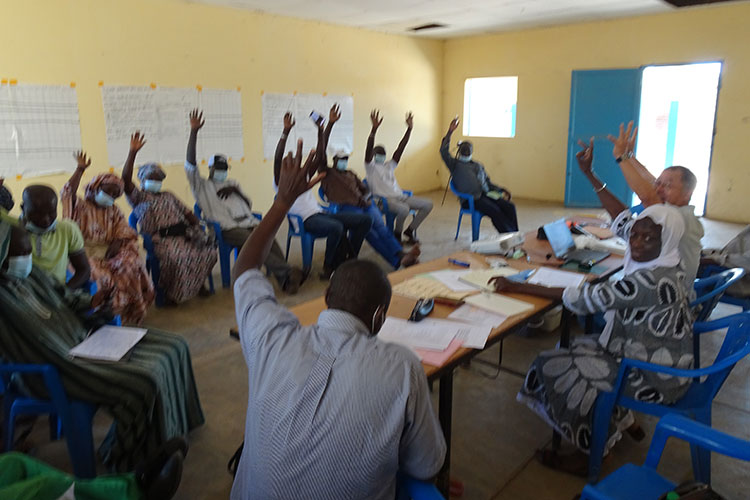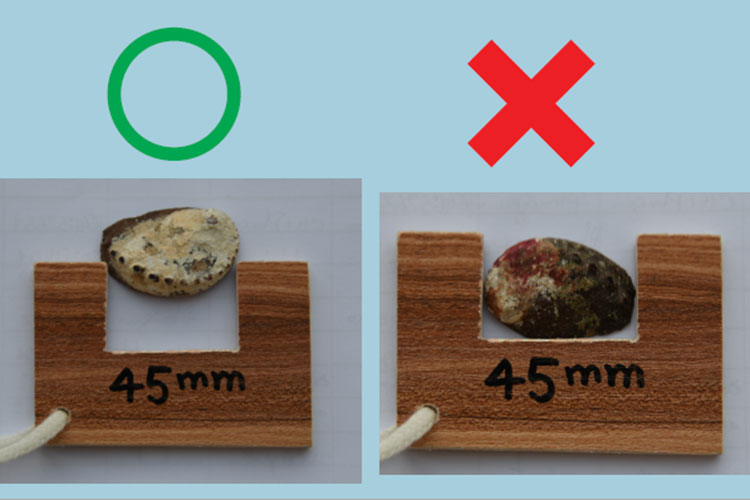1.2 Coordination of interests and consensus building among stakeholders
In addition to those whose livelihoods are directly supported by fishing, fishing communities include those who process and distribute marine products. Thus, interests of different groups may vary. Therefore, in the participatory joint management of fishery resources by local residents, it is essential to identify relevant stakeholders, understand the relationships among them, and coordinate their interests. This section describes how to build consensus by identifying relationships and establishing a consultative mechanism among stakeholders, such as extension offices of the Direction of Maritime Fisheries, local government fisheries officers, donor agencies, and fishermen and community leaders responsible for the co-management of fisheries resources.
- Identify stakeholders and clarify their relationships
- Create an opportunity for coordination of interests
- Create a platform for coordination of interests
- Seek consensus through coordination of interests
Identify stakeholders and clarify their relationships.
Based on the information obtained from the activities described in Section 1.1, stakeholders in fisheries resource management, including individuals, groups, organisations, and institutions in the target fishing village and surrounding areas, are listed. Information from the Fisheries Bureau and other sources, as well as interviews with the target people, will be used to clarify and understand the interests of stakeholders.
Create an opportunity for coordination of interests.
In the target fishing village or area, opportunities should be provided to confirm the perceptions of stakeholders and gather their opinions, such as by holding fishing village meetings or workshops to discuss the management methods of the target resources. Ideally, the first step is to initiate small discussions among friends who share the same problems, and then gradually widen the discussion circle to the entire fishing village. It is better to take time to reconcile the views of stakeholders with different interests, promote a consensus among stakeholders, and organise as many group meetings and fishing villages as necessary.
4. Understanding social relations in the community through meetings and workshops
Meetings and workshops are used to understand the positions and mindsets of leaders of professional groups within fishing communities. In Senegal, professional groups include fishermen, fishmongers, female processors, and distributors as well as local government officials, politicians, and other locally influential people. In large-scale fishing villages, groups may be organised by fishing method, such as purse seine fishermen's group and gillnet fishermen's groups. Whatever the group, it is necessary to understand the social relations in the target area by carefully observing the way of thinking from what people say at the fishing village meeting.
Create a platform for coordination of interests
A platform should be established where stakeholders, leaders of groups or organisations, and representatives of relevant administrations can meet regularly (and when problems arise) to discuss and coordinate their views on challenges in resource management activities. A somewhat formal structure, such as a consultation council, would be desirable, but it may be an informal gathering, depending on the situation. Setting up the platform has the advantage of including all parties with a direct interest in the issue and any third parties that do not have a direct interest in the issue, such as relevant administrators, so that adjustments of interests can be made in a rational manner. It is important to have a platform from as early in the process as possible, where core people can discuss the challenges and participants can share and coordinate their perceptions of the importance of the challenges (including any conflicts of interest). Members of the consultation council should include central and local government officials, fishermen, fish processors and distributors, and representatives of other relevant organisations.
5. It takes time and effort to persuade community members to adjust their views
Community members forming the core of the group meeting, such as fishers’ leaders, should first engage in information exchange and communication with their friends, and the circle of discussion should be gradually widened. It is not just one or two meetings but a series of daily ones that can lead to concrete results.
Seek consensus through coordination of interests.
Patiently providing a platform and opportunity for consultation, both formal and informal, could promote the coordination of interests among stakeholders in fishery resource co-management activities. In such consultations, the objectives, means, and procedures for implementing the activities will be discussed, and a consensus among the constituent members regarding certain approaches to issues will be developed.
4. Building a consensus for managing abalone resources
Both the size and quantity of Atlantic abalone collected in the waters near Dakar have been decreasing over the years. To introduce resource management activities for addressing this issue, the members of CLPA Dakar Ouest, with the support of the JICA project COPAO and the Directorate of Maritime Fisheries, have held discussions since May 2022 and agreed to adopt the following two methods: (1) establishing a closed fishing season; and (2) banning the harvest of abalone below certain dimensions. The CLPA members agreed to implement the two methods.

